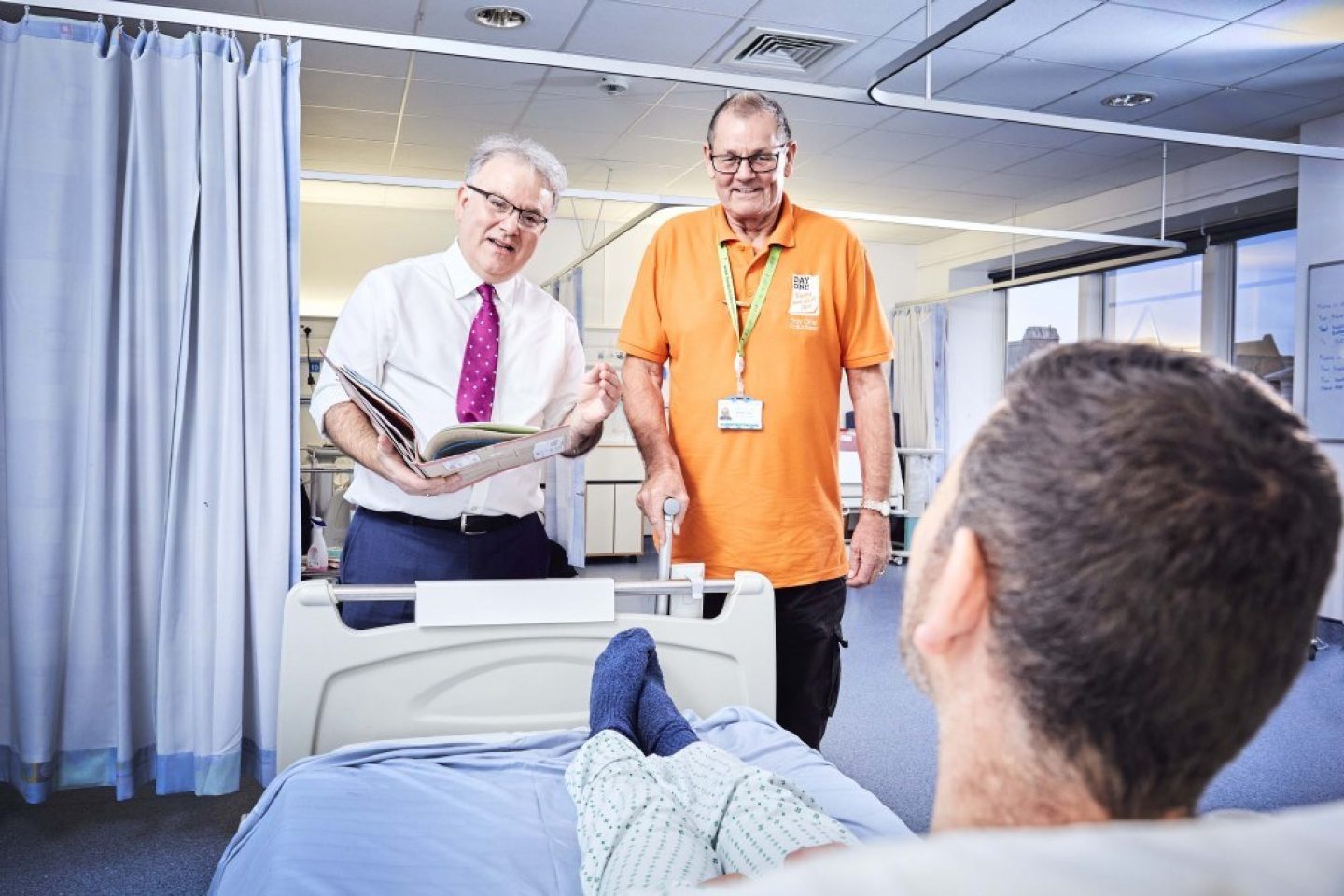Such professionals work under huge pressures and sometimes at great personal sacrifice. They’re often described as heroes by those they’ve helped, although not a term recognised by or used themselves. The reality is that when you’re injured, vulnerable, when you need help and to be scooped up by others who can put you back together and support you, it can have a very powerful and long-lasting impact.
I often think about health professionals on the front line, especially those who are key to life support, care and recovery for people seriously injured in road crashes. Over half of all major traumatic injuries are caused by road traffic incidents and, since 2014, Day One Trauma Support has worked alongside clinicians in major trauma care, working as part of the pathway to aid recovery and rehabilitation.
Day One’s story began with a courageous mission for trauma care excellence in Leeds: to create a holistic service beyond clinical care that meets people’s practical and emotional needs. Today, we exist to make that vital support available to everyone, everywhere.
Thanks to the ever-developing excellence in clinical care in the immediate aftermath of major trauma, more people are surviving their injuries. The reconfiguration of trauma care and introduction of NHS Major Trauma Centres in 2014 has vastly improved clinical outcomes for patients, increasing chances of survival by 19% and reducing time spent in hospital.
Notwithstanding the excellent clinical care that a person involved in a road crash will receive through the NHS, treatment is predominantly focused on repair and recovery from physical injury. It cannot address the wider impact on a person’s life, and the lives of those closest to them.
The impact of major trauma is hard to overstate. Life changing injury stops people in their tracks, lives completely changed in an instant. The physical limitations of pain and fatigue caused by injuries can be enormous – 30% of major trauma patients acquire a physical disability. This can have an impact on someone’s caring responsibilities as well as participating in everyday life activities which they previously enjoyed and accepted as a given.
There is a 40% increased chance of mental health illness following major traumatic injury, with 70 in every 100,000 patients taking their own life. Patients who receive care outside the area where they live are more at risk from depression and post-traumatic stress disorder. The psychological impact of major trauma cannot be overstated.
I’m proud of the part we play at Day One. Our Caseworkers are our ‘heroes’, providing people with a range of practical and emotional support services to help them navigate the challenges they face. Our team on the trauma wards are there for people from day one, for as long as is needed.
Our inspiring Peer Support Volunteers, who have lived experience of major trauma, are at the heart of what we do, ensuring those with similar experiences to them feel understood and supported as they begin their recovery journey.
Our ambition is to develop and expand our proven model of support to all Major Trauma Centres and Networks across the UK, making sure every patient affected by major trauma can benefit from the advice and support they may need to help them on their recovery journey.
If you have been affected by a major traumatic injury and want advice and support, or you want to help other people like you, visit www.dayonetrauma.org.
This blog is published for Road Safety Week 2021 in celebration of the road safety heroes who help us make safe and healthy journeys and support people after road crashes. Click here to find out more and sign up to take part.
Lucy Nickson
CEO of Day One Trauma Support



